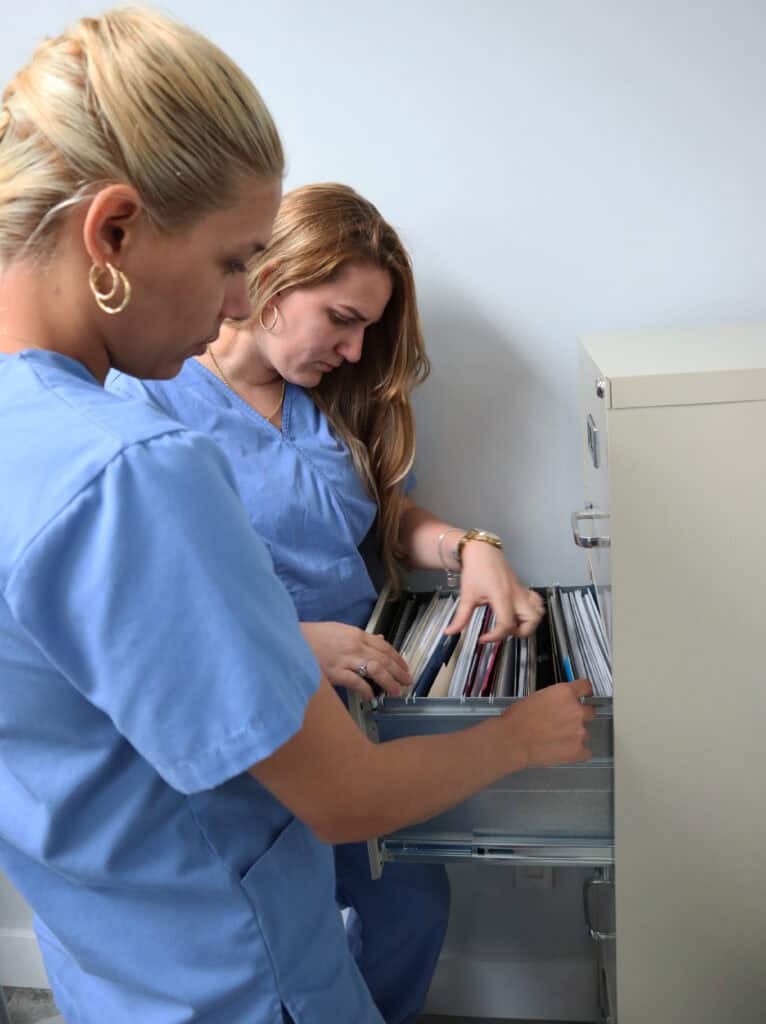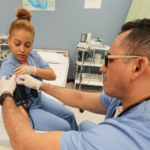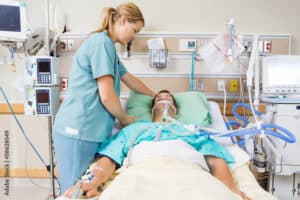
Undecided about whether to pursue a degree in the healthcare field as a Licensed Practical Nurse (LPN) or Registered Nurse (RN)? Advanced evidence projects above-average growth in this industry until 2029, so now is the best time to decide which area you would like to specialize in.
While both occupations, LPN and RN, are both in the nursing field, the responsibilities of each are contrasting. Hand-in-hand they work well together. Which field you enter is dependent on what appeals the most to you.
Basic Patient Care Versus Managerial
Licensed Practical Nurses are responsible for patient comfort and providing general nursing care. They conduct general health activities. LPN’s help with daily hygiene such as bathing or dressing the patient.
They discuss health care with patients and report the patient’s status back to the RN and/or doctor.
A Registered Nurse, on the other hand, has greater responsibilities. They administer medication and treatments to patients. An RN creates plans for patient care, does diagnostic tests, and analyzes results. They educate the patient and public regarding health care.
When they aren’t busy with nursing responsibilities, their job becomes administrative. RNs oversee a team of LPNs, home care workers, and nursing aides.
Differences in Responsibilities
The best way to determine what the differences are between an RN versus an LPN is to compare their duties.
LPNs are responsible for:
- Provide topical, oral, and rectal medications
- Give medications through IVs and monitor IV sites
- Perform and document physical assessments
- Measure vital signs
- Transfer patients in/out of bed/chair
- Collect specimens
- Monitor patients in long-term/in-patient settings
- Recognize important changes and report them
- Conducting Emergency CPR
An RN’s responsibilities include:
- Monitor/administer medications
- Lead and perform emergency response measures
- Develop a patient care plan
- Admit/discharge patients
- Carry out physician’s instructions
- Educate nurses
- Oversee a team
- Ensure patients’ safety
These are just a few of the responsibilities of each occupation. Both jobs involved a more detailed description than the broad overview listed here.
Direct Care Versus Assisted Care
Registered Nurses administer direct care to patients whereas Licensed Practical Nurses play a supporting role. The RN’s job in care is involved and requires a great deal of education. They are responsible for the well-being of that patient, and in carrying out the doctor’s instructions. RN’s deal with the specifics of patient care whereas LPNs are general.
While RNs play a supporting role to doctors, LPNs support RNs and work with them. LPNs take care of the general day-to-day tasks of taking care of the patient and implementing general health duties.
Where Do I Go from Here?
Advanced base evidence does suggest that there is an increasing demand for both LPNs and RNs for the next several years. Therefore, there is no better time to obtain your degree than the present. The FVI School of Nursing and Technology can assist you with which area would be best suited for you.
Apply to FVI’s practical nursing school in Florida.We have a Miami nursing school and a Miramar nursing school for nursing students in southern Florida. Both locations offer associate degree nursing programs in Florida.
For a career in the nursing industry, call FVI at 786-574-3350.
Contact us today for more information or apply now to get your Florida nursing career started








